
Rangamati: The Green Paradise of Bangladesh
Nestled in the lush green hills of the Chittagong Hill Tracts, Rangamati is a scenic town that captivates visitors with its natural beauty and rich cultural heritage. Known as the 'Lake City,' Rangamati is famous for its stunning Kaptai Lake, a vast man-made lake surrounded by verdant forests and rolling hills. The lake offers tranquil boat rides where you can soak in the serene landscape and visit the charming local villages along its shores. Rangamati is also home to a diverse mix of indigenous communities, each with its own unique traditions and crafts. A visit to the local markets and villages provides an opportunity to experience the vibrant cultures firsthand, from traditional handicrafts to delicious regional cuisine. Don't miss the chance to explore the Chakma Rajbari, the royal palace of the Chakma tribe, which provides insight into the area's history and culture. For nature enthusiasts, Rangamati offers numerous hiking trails through its picturesque hills, leading to hidden waterfalls and scenic viewpoints. The town is also a gateway to the Sajek Valley, another breathtaking destination known for its panoramic vistas and cool, misty climate. Whether you're seeking adventure, cultural immersion, or simply a peaceful retreat, Rangamati has something to offer every traveler.
Local tips in Rangamati
- Visit during the winter months (November to February) for the best weather and clearer skies.
- Hire a local guide for boat trips on Kaptai Lake to explore hidden spots and gain cultural insights.
- Explore the local markets for unique handicrafts and traditional textiles made by indigenous artisans.
- Plan a day trip to the Sajek Valley for stunning views and a chance to experience the local lifestyle.
- Respect local customs and traditions, especially when visiting indigenous communities.
Rangamati: The Green Paradise of Bangladesh
Nestled in the lush green hills of the Chittagong Hill Tracts, Rangamati is a scenic town that captivates visitors with its natural beauty and rich cultural heritage. Known as the 'Lake City,' Rangamati is famous for its stunning Kaptai Lake, a vast man-made lake surrounded by verdant forests and rolling hills. The lake offers tranquil boat rides where you can soak in the serene landscape and visit the charming local villages along its shores. Rangamati is also home to a diverse mix of indigenous communities, each with its own unique traditions and crafts. A visit to the local markets and villages provides an opportunity to experience the vibrant cultures firsthand, from traditional handicrafts to delicious regional cuisine. Don't miss the chance to explore the Chakma Rajbari, the royal palace of the Chakma tribe, which provides insight into the area's history and culture. For nature enthusiasts, Rangamati offers numerous hiking trails through its picturesque hills, leading to hidden waterfalls and scenic viewpoints. The town is also a gateway to the Sajek Valley, another breathtaking destination known for its panoramic vistas and cool, misty climate. Whether you're seeking adventure, cultural immersion, or simply a peaceful retreat, Rangamati has something to offer every traveler.
When is the best time to go to Rangamati?
Iconic landmarks you can’t miss
Polwel Park
Discover a serene lakeside retreat at Polwel Park in Rangamati, Bangladesh, offering natural beauty, recreational activities, and cultural experiences for an unforgettable escape.
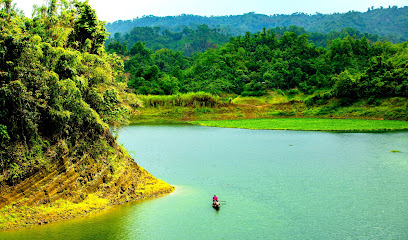
Rangamati Central Shaheed Minar
A waterfront monument in Rangamati honoring the martyrs of the Bengali Language Movement, symbolizing resilience and cultural pride.
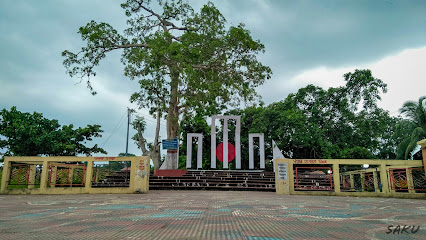
Rangamati Hanging Bridge
Experience the iconic Rangamati Hanging Bridge: a symbol of natural beauty and cultural heritage, offering breathtaking views of Kaptai Lake and the surrounding hills.
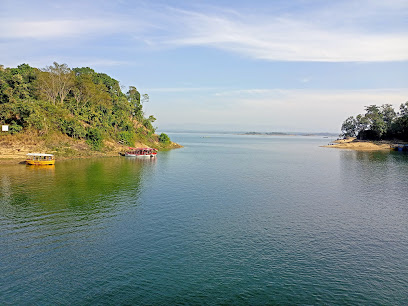
Rajban Vihar
Discover tranquility at Rajban Vihar, the largest Buddhist temple in Bangladesh, a serene sanctuary nestled in Rangamati's hills, offering spiritual solace and cultural immersion.
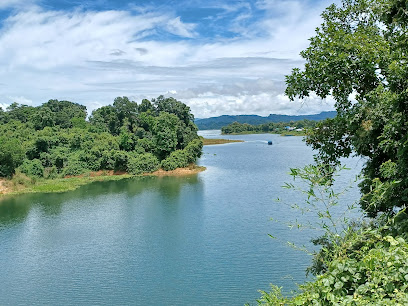
Love Point, Bangladesh
Discover Love Point in Rangamati, Bangladesh: A touching memorial to eternal love nestled in scenic Polwell Park, offering solace and inspiration to all visitors.
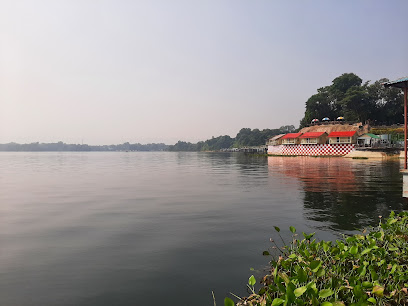
রাঙ্গামাটি বিনোদন কেন্দ্র
Discover Rangamati বিনোদন কেন্দ্র: A serene lakeside retreat offering stunning views, recreational activities, and a unique ambiance for social gatherings on Kaptai Lake.
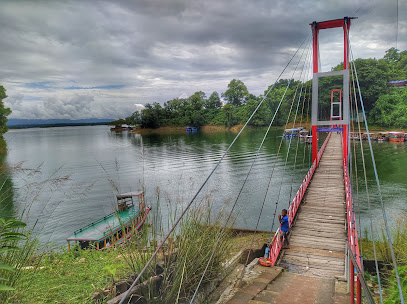
Chakma Rajbari - চাকমা রাজবাড়ি, রাঙামাটি পার্বত্য জেলা
Discover the rich heritage of Chakma Rajbari in Rangamati, a historical landmark reflecting the culture and traditions of the Chakma community.
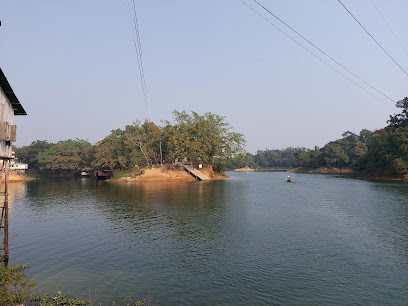
Rangamati College Shaheed Minar
A poignant tribute to the Language Movement martyrs, the Rangamati College Shaheed Minar stands as a symbol of Bengali identity and cultural pride in the heart of Rangamati.
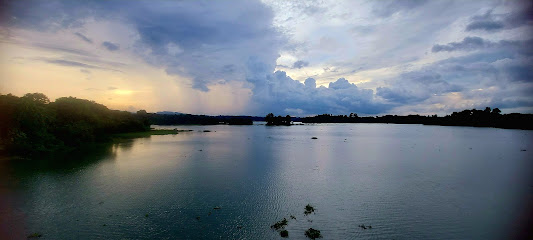
Unmissable attractions to see
Polwel Park
Discover the serene beauty of Polwel Park in Rangamati, Bangladesh, offering stunning views of Kaptai Lake, recreational activities, and a tranquil escape into nature's embrace.
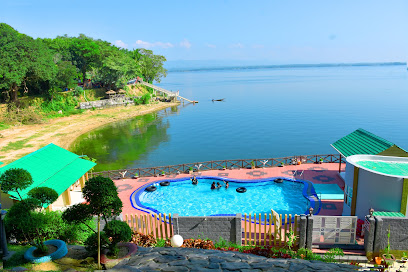
Shuvolong Waterfalls
Discover the majestic Shuvolong Waterfalls in Rangamati: a boat ride away from serene beauty and breathtaking cascades.
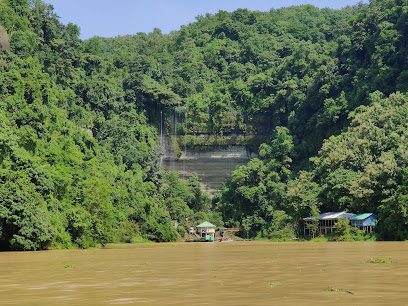
Divine Lake Island
Experience tranquility and natural beauty at Divine Lake Island, a unique island resort on Kaptai Lake, Rangamati.
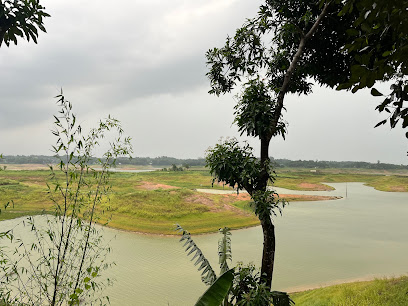
Kaptai Lake কাপ্তাই হ্রদ
Discover the serene beauty and cultural richness of Kaptai Lake, Bangladesh's largest man-made lake, offering boating, fishing, and cultural experiences.
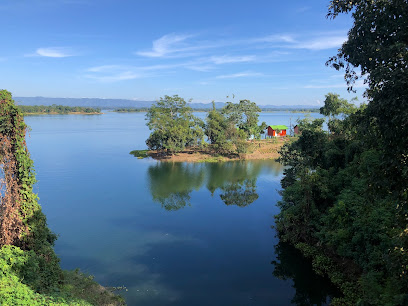
I love Rangamati
Capture the beauty of Rangamati from this scenic viewpoint along the Kaptai Lake route. A must-stop for nature lovers!
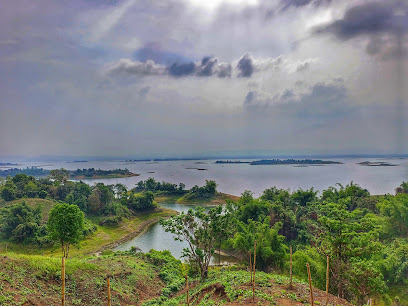
রাঙ্গামাটি বিনোদন কেন্দ্র
Discover Rangamati বিনোদন কেন্দ্র: A serene lakeside retreat with stunning views and recreational activities on Kaptai Lake.
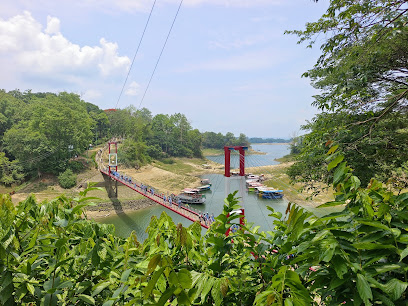
Furomown Hill
Experience breathtaking panoramic views from Furomown Hill, a serene natural retreat near Rangamati, perfect for sunrise and sunset vistas.
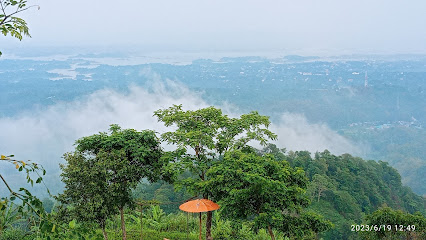
CirclePlus Waterfalls
Explore the serene beauty of CirclePlus Waterfalls in Rangamati, a perfect escape into nature's tranquil embrace.
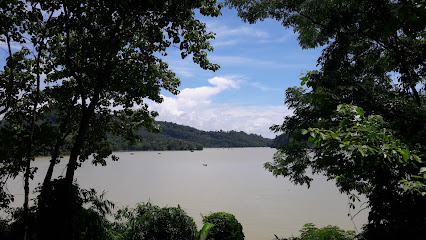
Rangamati Kerani pahar lakeview camping ground
Experience the serene beauty of Rangamati at Kerani Pahar Lakeview Camping Ground: panoramic views, tranquil nature, and cultural richness await!
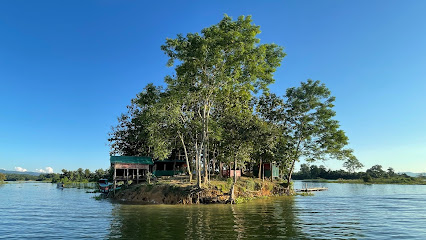
Kaptai National Park
Discover Kaptai National Park: A historic forest in Rangamati with diverse wildlife, lush landscapes, and tranquil escapes.
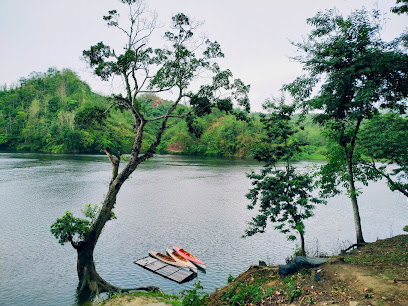
Assambosti Coconut Garden
Discover a tranquil paradise at Assambosti Coconut Garden in Rangamati, where lush greenery meets vibrant coconut palms for a serene escape.
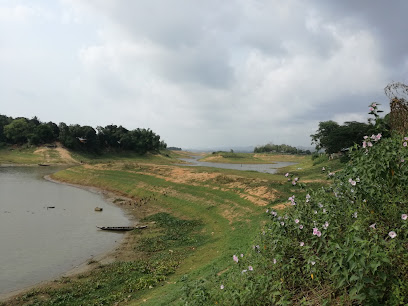
Furomown(Kaham Haphong) Hill View Point
Experience breathtaking panoramic views and tranquil natural beauty at Furomown (Kaham Haphong) Hill View Point on the Chittagong-Rangamati Highway.
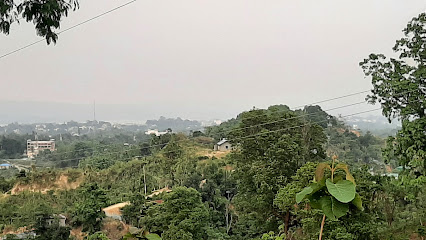
Kaptai Lake View Point
Experience breathtaking panoramic views of Kaptai Lake, Bangladesh, a perfect blend of nature, culture, and history.
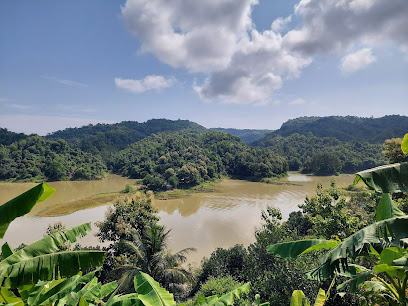
Mayaleen Floating Villa
Experience luxury on the water at Mayaleen Floating Villa, Rangamati. Discover Kaptai Lake's beauty with comfort and style.
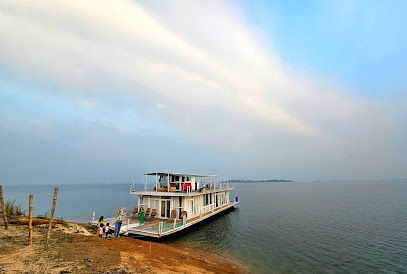
Gung par garden resort
Discover tranquility at Gung Par Garden Resort in Kaptai. Lush gardens, serene landscapes, and a peaceful retreat await in nature's embrace.
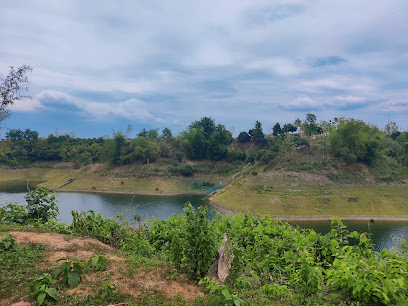
Essential places to dine
Berannye Lake Shore Cafe
Experience authentic tribal cuisine with stunning views at Berannye Lake Shore Cafe - a must-visit culinary destination.
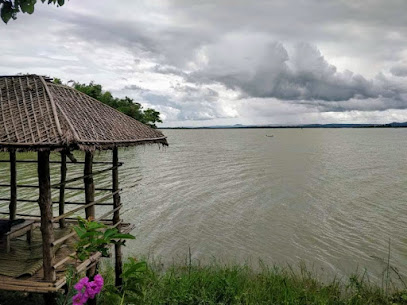
Panorama Zoom Restaurant And Kayak Club
Experience breathtaking views and delicious local cuisine at Panorama Zoom Restaurant and Kayak Club in Rangamati.
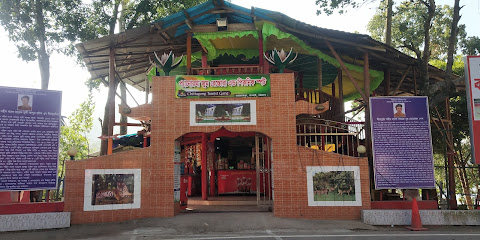
Chang Pang Restaurant
Experience authentic Bangladeshi cuisine by Lake Kaptai at Chang Pang Restaurant, where every meal is infused with local flavors.
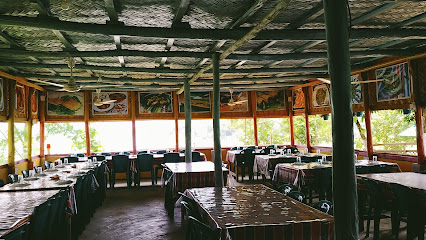
Kutum bari restora
Experience authentic Bangladeshi cuisine amidst breathtaking views at Kutum Bari Restaurant in Rangamati.
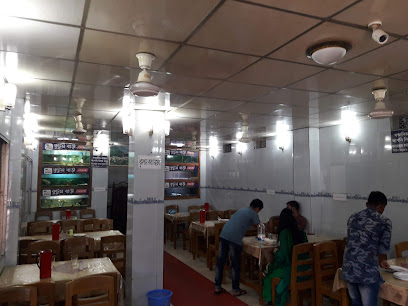
Borgaang Restaurant
Discover authentic Bangladeshi flavors at Borgaang Restaurant with stunning views of Kaptai Lake - a must-visit dining destination.
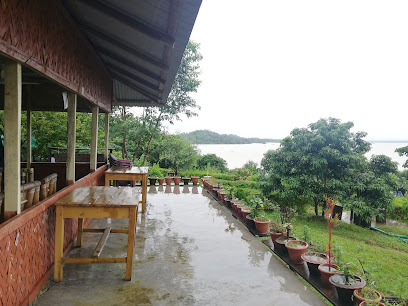
Peda Ting Ting
Discover authentic Bangladeshi flavors at Peda Ting Ting - your gateway to local cuisine in Bazar.
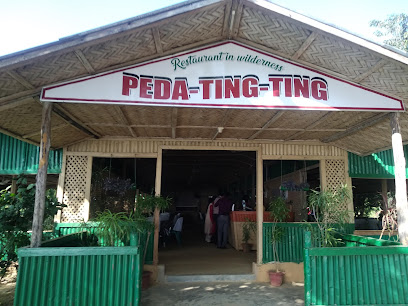
Gang Sabarang
Discover the vibrant flavors of Rangamati at Gang Sabarang, where local cuisine meets international delights in a warm atmosphere.
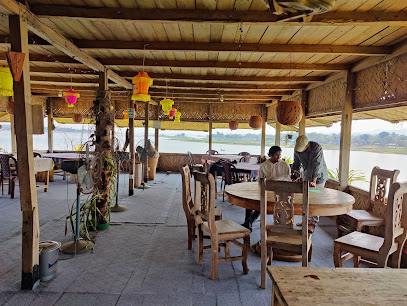
Bamboo Shoot Restaurant
Discover authentic Bangladeshi flavors at Bamboo Shoot Restaurant in Rangamati - where culinary excellence meets breathtaking views.
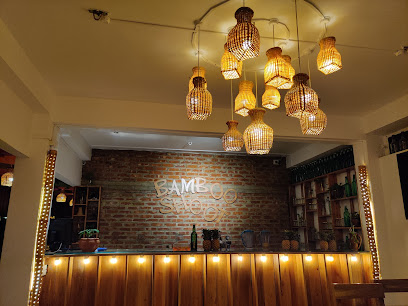
Rhong Raang Restaurant, Somota Ghat, Rangamati
Experience authentic Bangladeshi flavors at Rhong Raang Restaurant in Rangamati – where every meal is a delightful journey through local cuisine.
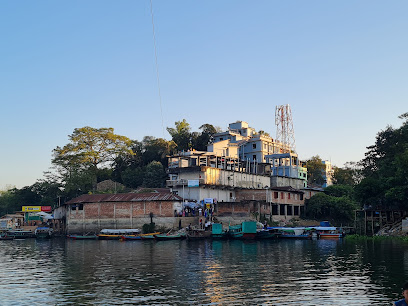
Ranga Cafe & Restaurant
Experience delightful Italian cuisine at Ranga Cafe & Restaurant in Rangamati - where every meal is a taste of tradition and comfort.
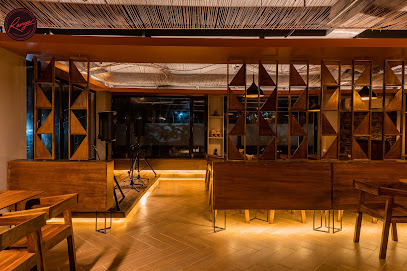
Hill N High Cafe
Experience breathtaking views and delightful cuisine at Hill N High Cafe in Rangamati - where nature meets flavor.
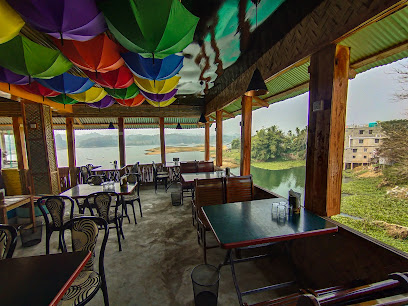
দোল - A Floating Lake view Restaurant in Rangamati
Experience exquisite dining with stunning lake views at Dól - Rangamati's premier floating restaurant offering local flavors and tranquil ambiance.
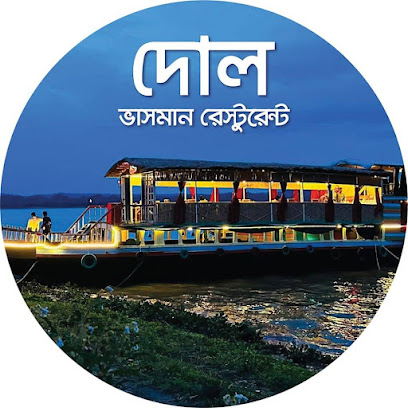
River view Restaurant, Rangamati
Experience culinary bliss at River View Restaurant in Rangamati, where every meal comes with stunning river views and authentic Bangladeshi flavors.
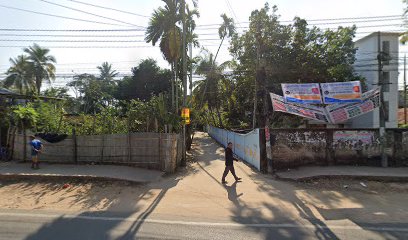
Food N Fun Restaurant
Experience authentic Bangladeshi cuisine at Food N Fun Restaurant in Rangamati - where local flavors meet warm hospitality.
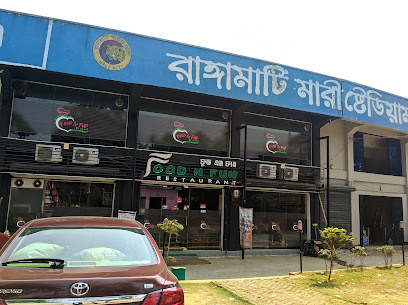
Miami Restaurant
Discover the rich flavors of authentic Bangladeshi cuisine at Miami Restaurant in Rangamati – a culinary journey awaits!
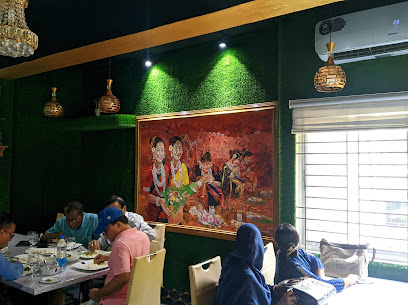
Markets, malls and hidden boutiques
B M Shopping Complex
Discover local culture and modern shopping at B M Shopping Complex in Rangamati, a vibrant hub for tourists seeking unique experiences.
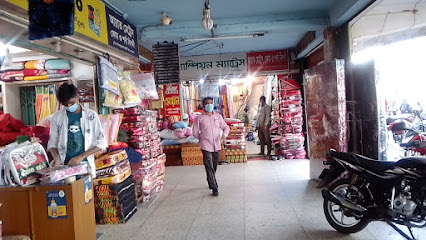
লোকমান স্টোর
Explore the authentic tastes of Rangamati at Lokman Store, your go-to grocery destination for local flavors and fresh produce.
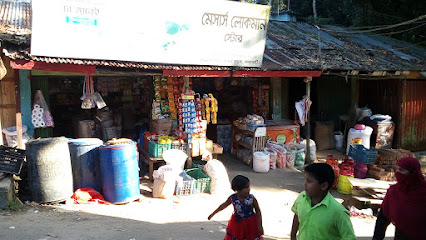
Mozumder Brothers
Discover the essence of Rangamati at Mozumder Brothers, a grocery store offering local flavors, fresh produce, and a taste of Bangladeshi culture.
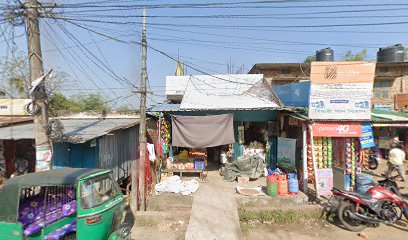
উপজাতি মার্কেট
Discover the essence of Rangamati at Upajati Market, where vibrant culture meets unique handicrafts and local delicacies.
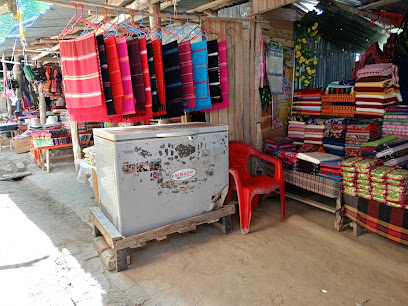
Bangladesh Small Cottage Industries Corporation(BSCIC)
Explore the rich craftsmanship of Bangladesh at the Small Cottage Industries Corporation, a unique furniture store in Rangamati offering exquisite handmade products.
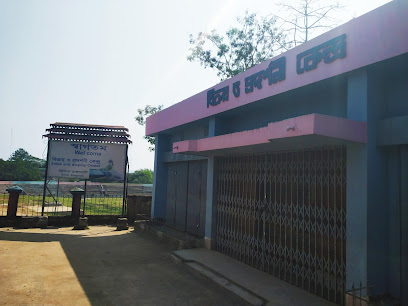
Chobee Fashion
Explore Chobee Fashion in Rangamati for a unique shopping experience blending local culture with modern style.
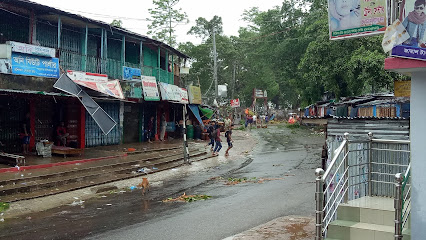
Maa Store
Discover local flavors and unique products at Maa Store, your go-to grocery shop in the heart of Rangamati, Bangladesh.
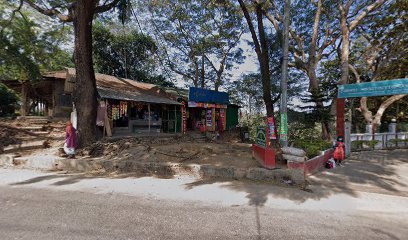
Hassan Store
Discover local flavors and essentials at Hassan Store, a must-visit grocery shop in the heart of Rangamati, perfect for tourists seeking authentic experiences.
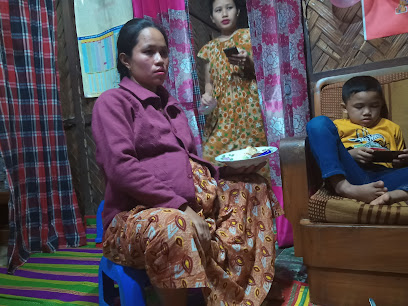
Siddik Store
Discover the flavors of Rangamati at Siddik Store, where local produce and traditional snacks await every visitor in Bangladesh.
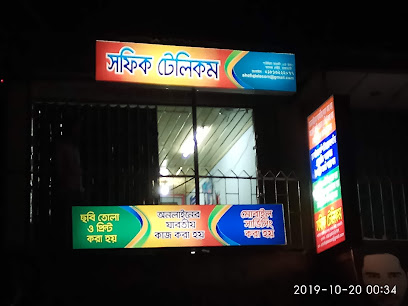
Shopno Kutiro
Discover the essence of Rangamati fashion at Shopno Kutiro, where traditional meets modern in a vibrant shopping experience.
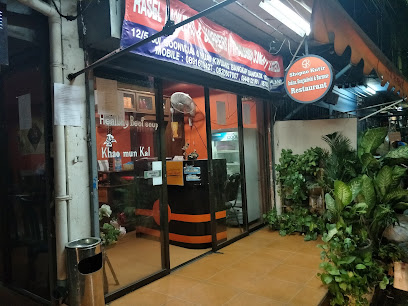
Ranga Shopping Best Online Shop In Rangamati
Experience the vibrant culture of Rangamati at Ranga Shopping, your destination for authentic local crafts and souvenirs.

Kidds & Gift House
Explore unique gifts and local crafts at Kidds & Gift House in Rangamati, where every item tells a story.
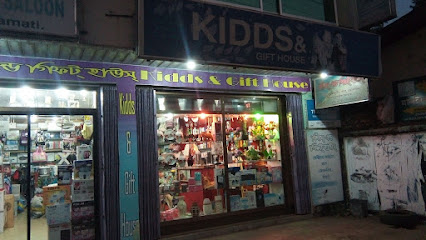
Azmir Store
Experience the vibrant shopping scene at Azmir Store in Rangamati, Bangladesh - your go-to destination for local goods, souvenirs, and more.
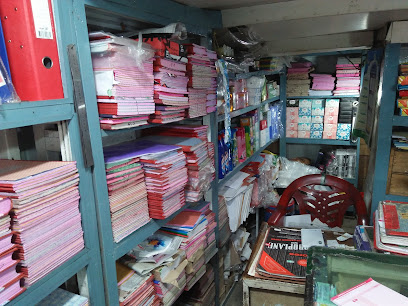
Labuni Furniture Mart
Explore exquisite handcrafted furniture at Labuni Furniture Mart in Rangamati, where tradition meets contemporary design in every unique piece.
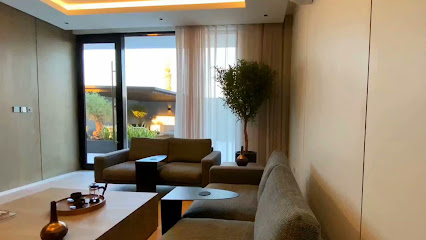
SPORTS CENTER
Experience the vibrant sports culture at the Sports Center in Rangamati, where fitness meets community and excitement.
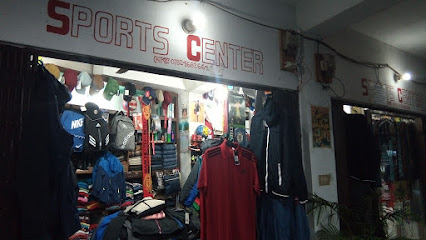
Essential bars & hidden hideouts
Kutum bari restora
Experience the heart of Bangladeshi cuisine at Kutum Bari, a must-visit restaurant in Rangamati, offering authentic flavors and a warm atmosphere.
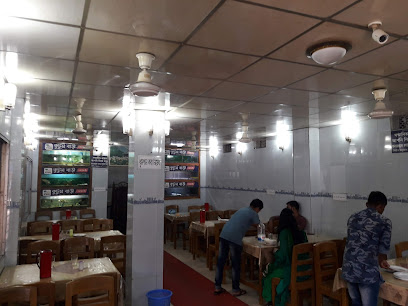
Kabab ghor & BBQ
Experience the rich flavors of Bangladeshi cuisine at Kabab Ghor & BBQ, the perfect dining spot in Rangamati for kebab lovers and food enthusiasts.
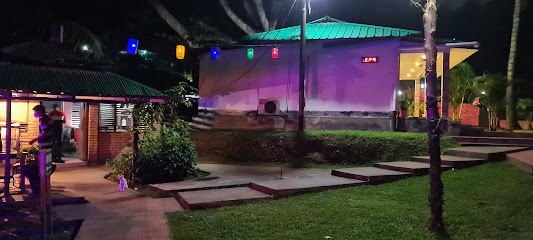
Kingdom's Garden & Restaurant-KGR
Discover the flavors of Bangladesh at Kingdom's Garden & Restaurant-KGR, a serene dining spot in Rangamati offering local culinary delights.
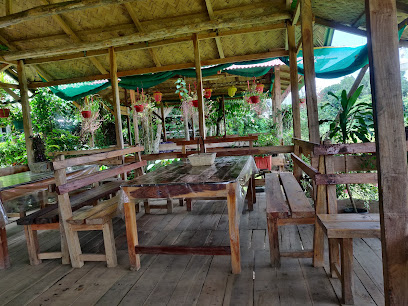
Irish Restaurent
Experience authentic Irish cuisine in the scenic beauty of Rangamati, where tradition meets culinary excellence.
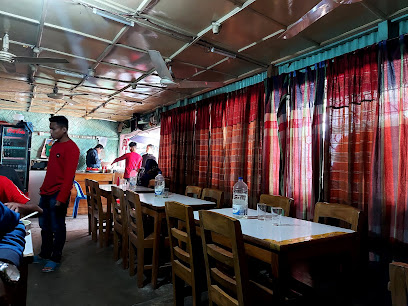
Ranga Cafe & Restaurant
Experience the vibrant tastes of Bangladesh at Ranga Cafe & Restaurant, where delicious cuisine meets stunning natural beauty.
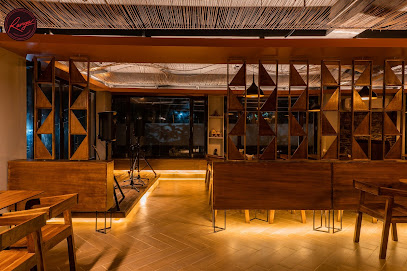
Hill N High Cafe
Experience the flavors of Rangamati at Hill N High Cafe, where stunning views meet delightful cuisine in a vibrant atmosphere.
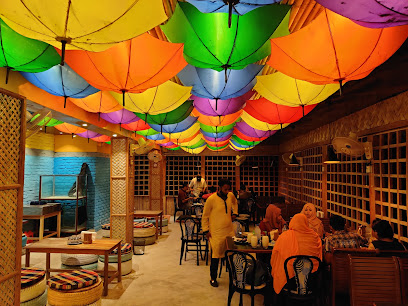
Amader Restora Rangamati
Experience authentic Bangladeshi cuisine at Amader Restora in Rangamati, where traditional flavors meet a cozy dining atmosphere.
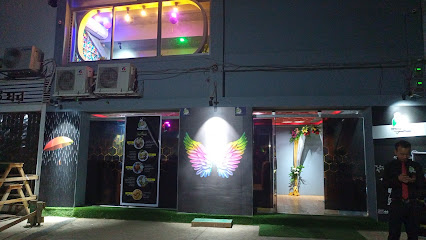
Food N Fun Restaurant
Experience the vibrant culinary scene at Food N Fun Restaurant, where local flavors and international dishes come together in Rangamati.
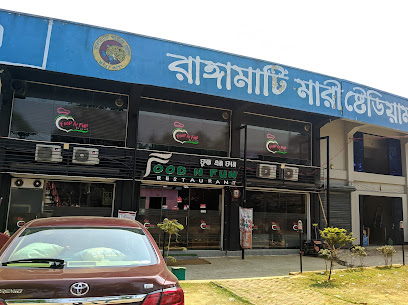
Rangamati Hill Tourist Restaurant & Coffee House
Experience the perfect blend of taste and scenery at Rangamati Hill Tourist Restaurant & Coffee House, where every meal is a feast for the senses.
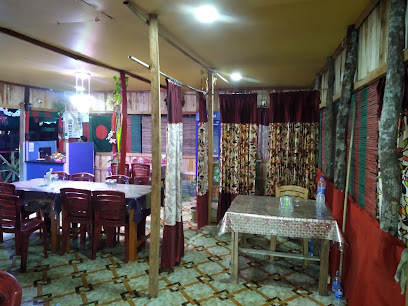
Robi adda centre
Experience the vibrant nightlife at Robi Adda Centre, the go-to bar in Rangamati for unwinding and socializing over local drinks.
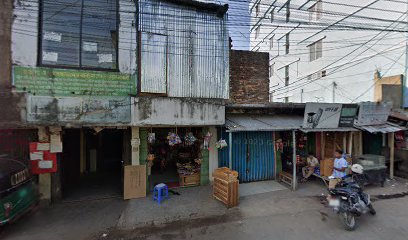
Mejang Cafe
Experience authentic Bangladeshi cuisine at Mejang Cafe, a cozy eatery located in the beautiful town of Rangamati.
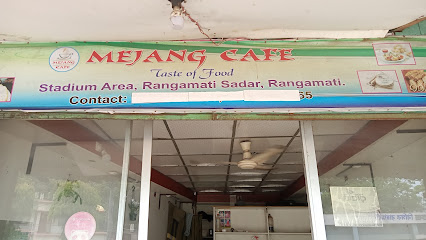
Cafe Sholoana
Discover the flavors of Rangamati at Café Sholoana, where local and international cuisines blend in a serene setting.
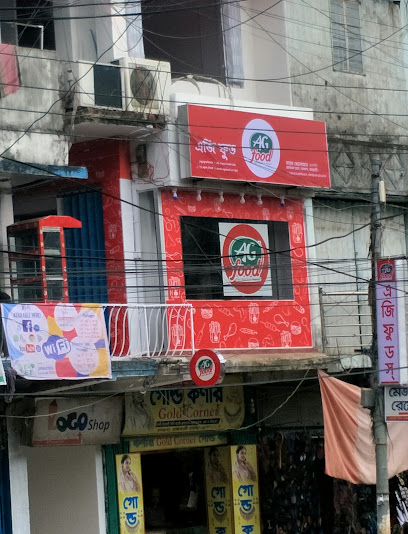
Dreamland Restaurant
Experience authentic Bangladeshi cuisine in a cozy setting at Dreamland Restaurant, a must-visit spot in Rangamati for food lovers.
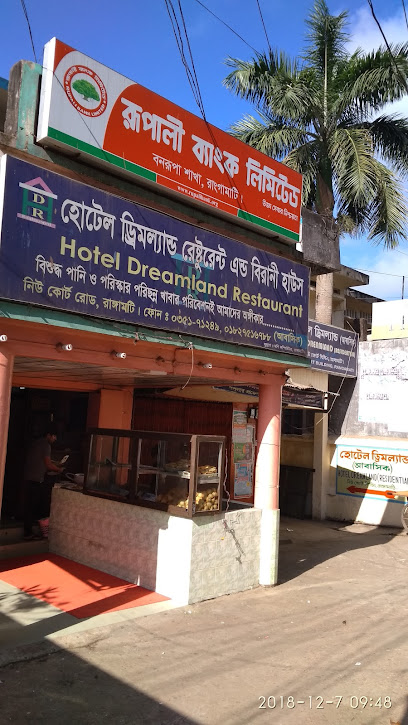
Different Taste Tea & Juice Shop
Experience the authentic flavors of Rangamati at Different Taste Tea & Juice Shop, where every sip is a taste of local culture and freshness.

Local Phrases about Rangamati
-
- Helloনমস্কার
[Nomoshkar] - Goodbyeবিদায়
[Biday] - Yesহ্যাঁ
[Hyāṁ] - Noনা
[Nā] - Please/You're welcomeদয়া করে
[Dôẏā karē] - Thank youধন্যবাদ
[Dhônnōbād] - Excuse me/Sorryদুঃখিত
[Duḥkhita] - How are you?আপনি কেমন আছেন?
[Āpani kēmana āchēna?] - Fine. And you?ঠিক আছি। আপনি?
[Ṭhika āchi. Āpani?] - Do you speak English?আপনি ইংরেজি বলতে পারেন?
[Āpani iṅrēji bōlatē pārēna?] - I don't understandআমি বুঝতে পারছি না
[Āmi bujhate pārachhi nā]
- Helloনমস্কার
-
- I'd like to see the menu, pleaseদয়া করে মেনুটি দেখাবেন
[Dôẏā karē mēnuṭi dēkhābēn] - I don't eat meatআমি মাংস খাই না
[Āmi māṅsa khāi nā] - Cheers!চিয়ার্স!
[Chiẏārs!] - I would like to pay, pleaseদয়া করে আমি দিতে চাই
[Dôẏā karē āmi ditē chāi]
- I'd like to see the menu, pleaseদয়া করে মেনুটি দেখাবেন
-
- Help!সাহায্য!
[Sāhāẏya!] - Go away!চলে যাও!
[Chalē yā'ō!] - Call the Police!পুলিশকে ডাকুন!
[Puliśakē ḍākun!] - Call a doctor!ডাক্তারকে ডাকুন!
[Ḍāktārakē ḍākun!] - I'm lostআমি হারানো গেছি
[Āmi hārānō gēchi] - I'm illআমি অসুস্থ
[Āmi asustha]
- Help!সাহায্য!
-
- I'd like to buy...আমি ... ক্রয় করতে চাই
[Āmi ... krôẏa karatē chai] - I'm just lookingআমি একমাত্র দেখছি
[Āmi ēkmātra dēkhachhi] - How much is it?এটা কত টাকা?
[Ēṭā kata ṭāka?] - That's too expensiveএটা খুব দামি
[Ēṭā khuba dāmi] - Can you lower the price?দাম কমাতে পারবেন?
[Dāma kamātē pārabēn?]
- I'd like to buy...আমি ... ক্রয় করতে চাই
-
- What time is it?এখন কত বাজে?
[Ēkhana kata bājē?] - It's one o'clockএকটা বাজে
[Ēkaṭā bājē] - Half past (10)দশের অর্ধেক
[Dasher ōrdhēka] - Morningসকাল
[Sakāla] - Afternoonঅপরাহ্ন
[Aparāhna] - Eveningসন্ধ্যা
[Sāndhyā] - Yesterdayগতকাল
[Gatakāla] - Todayআজ
[Āja] - Tomorrowআগামীকাল
[Āgāmīkāla] - 1এক
[Ēka] - 2দুই
[Dui] - 3তিন
[Tina] - 4চার
[Chara] - 5পাঁচ
[Pām̐ca] - 6ছয়
[Chhôy] - 7সাত
[Sāta] - 8আট
[Āṭa] - 9নয়
[Nôẏa] - 10দশ
[Dasha]
- What time is it?এখন কত বাজে?
-
- Where's a/the...?...কোথায়?
[... Kōthāẏa?] - What's the address?ঠিকানা কি?
[Ṭhikānā ki?] - Can you show me (on the map)?আপনি আমাকে দেখাতে পারবেন?
[Āpani āmākē dēkhātē pārabēn?] - When's the next (bus)?পরবর্তী (বাস) কখন?
[Pōrbartī (bāsa) kakhan?] - A ticket (to ....)একটি টিকেট (.... এ)
[Ēkaṭi ṭikēṭ (.... ē)]
- Where's a/the...?...কোথায়?
History of Rangamati
-
Rangamati, known for its lush green hills and serene lakes, has a rich history dating back thousands of years. The region was historically part of the ancient Pundra Kingdom, which thrived during the pre-Mauryan and Mauryan periods. The indigenous communities, such as the Chakma, Marma, and Tripuri, have preserved their unique cultural heritage over the centuries, contributing to the region's diverse cultural tapestry.
-
Buddhism has played a significant role in the cultural and spiritual life of Rangamati. The region is dotted with ancient Buddhist temples and stupas, some dating back to the 8th century AD. The Rajban Bihara, a prominent Buddhist monastery, stands as a testament to the enduring influence of Buddhism in the area. The monastery attracts pilgrims and tourists alike, offering a glimpse into the region's spiritual heritage.
-
During the British colonial period, Rangamati became part of the Chittagong Hill Tracts, an administrative region established in the 19th century. The British implemented policies that significantly impacted the indigenous communities, including land and forest regulations. The construction of the Kaptai Dam in the 1960s, during the Pakistani era, led to the displacement of many indigenous people and submerged a large part of the region under water, creating the Kaptai Lake.
-
The Kaptai Dam, built on the Karnaphuli River between 1956 and 1962, is one of the most significant historical landmarks in Rangamati. The dam's construction created Kaptai Lake, the largest man-made lake in Bangladesh, covering an area of approximately 110 square miles. While the lake has become a major tourist attraction, its creation also had profound social and environmental impacts, including the displacement of around 100,000 indigenous people and the submergence of fertile land and cultural sites.
-
The Chittagong Hill Tracts Peace Accord, signed in 1997 between the Government of Bangladesh and the Parbatya Chattagram Jana Sanghati Samiti (PCJSS), marked a significant milestone in the history of Rangamati. The accord aimed to end decades of conflict between the government and indigenous communities seeking greater autonomy and recognition of their rights. The peace accord has facilitated greater stability and development in the region, promoting tourism and cultural exchange.
-
Rangamati is renowned for its vibrant cultural festivals, which reflect the rich traditions of its indigenous communities. The Boisabi Festival, celebrated by the Chakma, Marma, and Tripuri people, marks the New Year and is characterized by colorful processions, traditional dances, and the preparation of special foods. The region's handicrafts, including hand-woven textiles, bamboo products, and traditional jewelry, showcase the artistic skills and cultural heritage of its people.
Rangamati Essentials
-
Rangamati is located in the Chittagong Hill Tracts of Bangladesh. The nearest major city is Chittagong, which has an international airport (Shah Amanat International Airport). From Chittagong, you can take a bus or a private car to Rangamati. The journey typically takes around 3 to 4 hours by road. Alternatively, you can take a train from Dhaka to Chittagong, and then continue by road to Rangamati.
-
Rangamati is a hilly area, and while many attractions are accessible by foot, hiring a local guide or taking a rickshaw can be helpful for longer distances. Local buses and boats are also available for transportation within the district. Motorbikes can be rented for greater flexibility in exploring the area.
-
The official currency in Bangladesh is the Bangladeshi Taka (BDT). Credit cards are accepted in some hotels and restaurants, but it is advisable to carry cash, especially when visiting remote areas and smaller establishments. ATMs are available in Rangamati, but it's wise to carry sufficient cash for your needs.
-
Rangamati is generally a safe destination for tourists. However, like any travel destination, it's important to take standard precautions. Avoid walking alone at night in unfamiliar areas and keep an eye on your belongings in crowded places. There are no specific high-crime areas targeting tourists, but staying vigilant is always recommended.
-
In case of emergency, dial 999 for immediate assistance. The local police station and medical facilities are available in Rangamati. It is recommended to have travel insurance that covers medical emergencies. For minor health issues, there are pharmacies in the town where you can purchase over-the-counter medications.
-
Fashion: Do dress modestly, especially when visiting religious sites. Avoid wearing revealing clothing. Religion: Do respect local customs and traditions. Always remove your shoes before entering a mosque or a local home. Public Transport: Do be respectful and give up your seat to elderly passengers. Don't eat or drink on public transport. Greetings: Do greet people with a friendly 'Salaam'. A slight bow of the head is also a sign of respect. Eating & Drinking: Do try local delicacies and accept food offerings graciously. Don't refuse hospitality, as it is considered impolite.
-
To experience Rangamati like a local, visit the local markets where you can buy fresh produce and traditional handicrafts. Engage with locals, as they are often friendly and willing to share stories about the area's history and culture. Don't miss visiting the Kaptai Lake, which offers stunning scenic views and boat rides. For a unique experience, visit the remote tribal villages to learn more about the diverse ethnic groups in the region.
Nearby Cities to Rangamati
-
Things To Do in Aizawl
-
Things To Do in Comilla
-
Things To Do in Cox's Bazar
-
Things To Do in Agartala
-
Things To Do in Barisal
-
Things To Do in Dhaka
-
Things To Do in Sylhet
-
Things To Do in Mrauk U
-
Things To Do in Khulna
-
Things To Do in Sittwe
-
Things To Do in Imphal
-
Things To Do in Jessore
-
Things To Do in Bagan
-
Things To Do in Shillong
-
Things To Do in Guwahati












